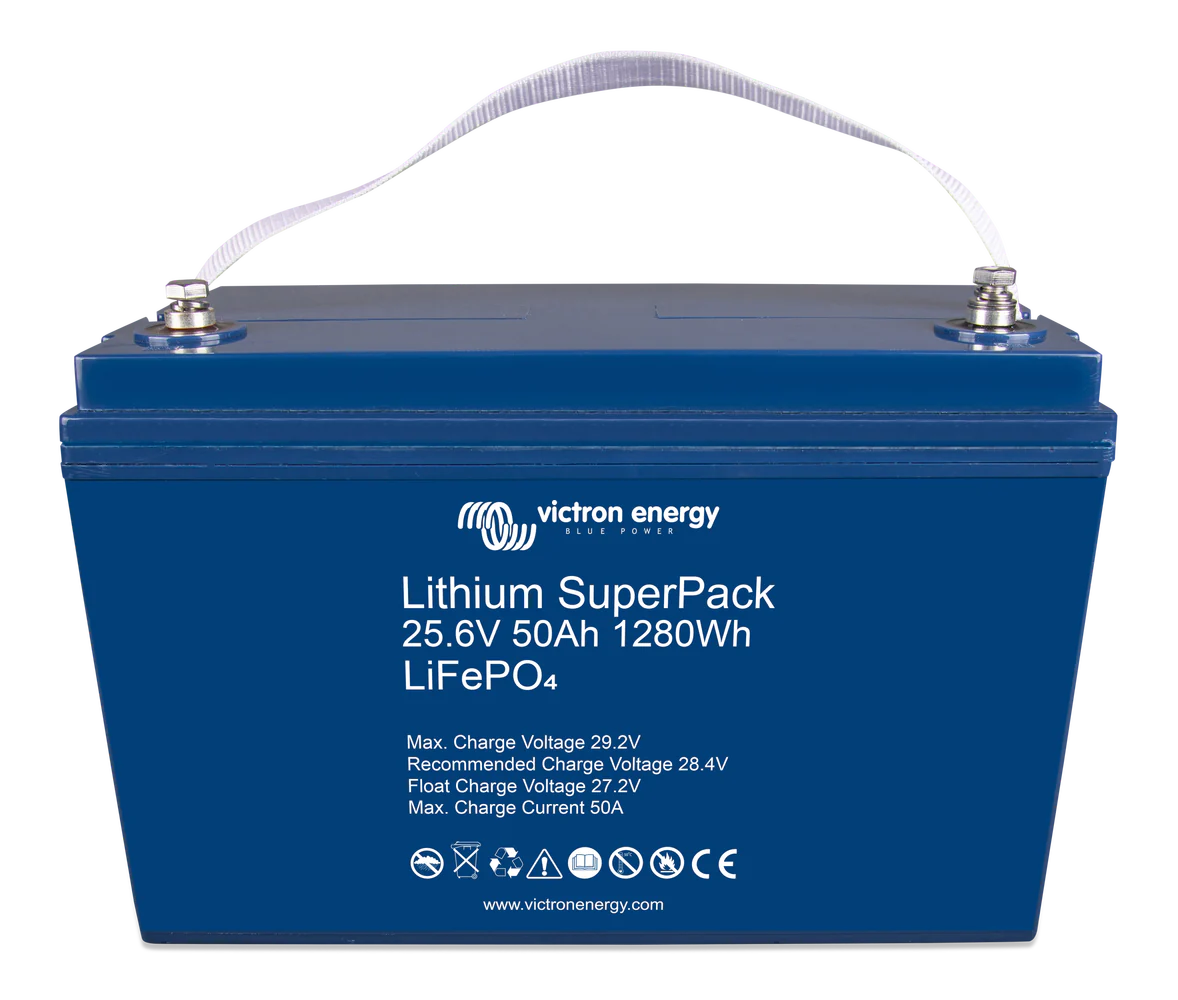What is a Boat Battery?
Think of your boat battery as being similar toa car battery but designed for the marine environment. It needs to be powerful enough to handle marine conditions and provide reliable power.
Boat batteries come in several types, each requiring specific care. Victron Energy offers a range of batteries, including advanced options like AGM (Absorbent Glass Mat) and gel batteries, known for their durability and maintenance-free operation.
General Boat Battery Maintenance
Leisure battery maintenance includes checking for corrosion or leaks, cleaning terminals to prevent corrosion, checking if the battery is properly charged using a suitable charger, maintaining fluid levels in lead-acid batteries, and storing the battery in a cool, dry place during off-seasons. Following these steps helps extend the life and efficiency of your boat batteries.
How to Maintain Your Boat’s Battery Over Winter
Follow these steps:
- Fully Charge the Battery: Ensure your battery is fully charged before storage to prevent the battery from freezing.
- Disconnect the Battery: Disconnect the battery from your boat to prevent any power drain.
- Clean and Inspect: Clean the battery terminals and check for any signs of damage or corrosion.
- Store in a Cool, Dry Place: Keep the battery in a location that avoids extreme cold or heat fluctuations.
- Periodic Checks: Check the battery charge periodically throughout the winter and recharge if necessary to maintain its health.
Advanced Maintenance Techniques for Leisure Boat Batteries
Equalisation Charges:
This process helps to equalise the charge across the cells within the battery by applying a controlled overcharge. This can be particularly beneficial for lead-acid batteries to prevent sulphation; which is the build-up of crystals on the battery plates.
Using Battery Management Systems (BMS):
The battery management systems protect your battery by ensuring safe operating conditions. It disconnects the battery if voltage drops to a dangerous level or if it detects issues that could lead to overheating, ensuring both safety and longevity.
Understanding Voltage Readings:
Monitoring the voltage of your batteries can give you insights into their health and state of charge. Victron’s battery chargers and monitoring systems, such as the Victron Phoenix Smart IP43 Charger and the Blue Smart IP67 Charger, are equipped with Bluetooth connectivity, allowing you to monitor and adjust settings remotely. This technology makes it easy to track your battery's voltage and make necessary adjustments. This can be done by accessing the charger’s settings through the Victron app.
Regular Monitoring and Testing:
Regularly checking the battery's state of charge and overall health can help you identify issues before they lead to battery failure. Systems like Victron's battery monitors provide detailed diagnostics and status updates, facilitating precise maintenance tasks.
Can a Marine Battery Sit in Water?
Marine batteries are designed to be water-resistant but not waterproof. They should not be submerged or sit in water, as this can lead to damage from corrosion, short circuits, and other issues. It is important to keep them in a dry, ventilated area on your boat to prevent water-related damage and ensure their longevity.
Interested in Learning More?
Explore the extensive range of marine and vehicle power solutions available on our website. We specialise in providing high-quality products from advanced battery systems to comprehensive solar solutions and robust power inverters, we offer everything you need to upgrade your boat’s electrical setup.


